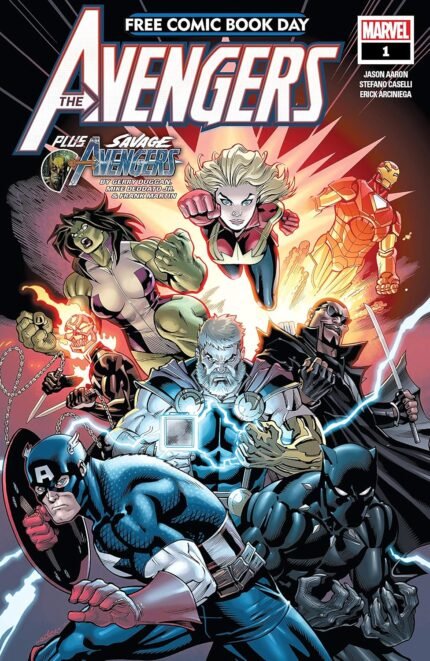
Price: ₹99.00
(as of Jan 30, 2025 22:32:59 UTC – Details)

A poet, a physicist, and a philosopher explore the greatest enigmas of the universe in this scintillatingly original book about the limits of human knowledgeArgentine poet Jorge Luis Borges was madly in love when his life was shattered by painful heartbreak. But the breakdown that followed illuminated an incontrovertible truth – that love is necessarily imbued with loss, that the one doesn’t exist without the other.German physicist Werner Heisenberg was fighting with the scientific establishment about the absurdity of the quantum realm when he had his own epiphany – that there is no such thing as a complete, perfect description of reality.Prussian philosopher Immanuel Kant pushed the assumptions of human reason as far as they could go, concluding that the human mind has fundamental limits, and those limits undergird both our greatest achievements and our missteps.Through fiction, science, and philosophy, the work of these three thinkers coalesced around one powerful, haunting truth: there is an irreconcilable difference between reality “out there” and reality as we experience it. In this soaring, lucid narrative, William Egginton profoundly demonstrates the enduring mystery of the world, and our place within it.
ASIN : B0DC14ZFBB
Publisher : ONE (10 October 2024)
Language : English
File size : 1838 KB
Text-to-Speech : Enabled
Screen Reader : Supported
Enhanced typesetting : Enabled
X-Ray : Not Enabled
Word Wise : Enabled
Print length : 418 pages























P. Bawa –
A friend recommended this book, so I bought it immediately and tried to read it. I just could not finish it. I know Heisenberg’s work in physics, so I could understand that part better. I generally lend my books to friends, but did not dare to lend this one.
Nathan –
I like a lot of books. It has been some time since I enjoyed a book to this extent. Philosophical, biographical, anecdotal, scientific, linguistic, the book offers a lot. Eggington explores how our very act of observation and interpretation shapes the reality we experience, paralleling a notion prominent in Heisenberg’s uncertainty principle and Borges’s fictional explorations. That ability to observe and interpret is Reason, the focus for Kantâs work and the basis of what is admirable. The self is the entity that builds relations. Without relation, there is nothing. âSlowing life to a single frame destroys the observation itself.â (No momentum, just position) In an example of the rigor in research that Eggington put into this work, he finds that all three men (Borges, Kant, Heisenberg) are united not just by their struggle and impacts on space and time (and thoughts/ words to describe them), but (see Cloud Cuckoo Land) a book they each read: âPlotinus, and his book The Enneads, expounds the doctrine of time as the moving image of eternity that was so influential to Augustine and that seeped into the groundwaters of Kantâs intellectual upbringing. Curiously, it was this very book that Borges was reading as he searched for respite from his overwhelming despair.â Rigor of Angels examines the concept of reality as perceived and constructed by human cognition, challenging the traditional notions of space, time, and self. The text underscores the limitations of human perception and the paradoxical nature of seeking objective reality, highlighting the role of human reason in shaping our understanding of the world. A little redundant here and there, perhaps, and not a perfect book but a wonderful one. Itâs a valuable exploration of the precise and the abstract, with the ability to create and to resolve mystery by living in between.
vittoria martinetto –
I adore when ideas from different fields of knowledge – philosophy, literature, physics – converge in a wider and original vision of reality. Last but not least William Egginton has such an elegant prose. Outstanding book. To read more than once. Bravo!
MrMartin –
Esta es la opinión que menciono en el tÃtulo.”The subject matter is engrossing for a reader with an interest in both philosophy and contemporary physics. In my opinion the writing style made the reading a bit more difficult than necessary. Specifically, many of the sentences were of almost paragraph length and I found myself re-reading them in order to follow the gist of the authorâs presentation. That having been said, the subject matter is fascinating but could have been presented in a more readable manner.”El contenido es fascinante y profundo. No está al alcance de todo el mundo.Precisamente porque el libro es de contenido difÃcil, el modo en que está escrito es inconveniente. El inglés que utiliza el autor es rebuscado y casi retorcido (yo dirÃa que a propósito) para que una materia tan densa, incluso estando avisado el lector, se haga de más difÃcil entendimiento. El inglés más retorcido que me he encontrado.Es curioso que en el propio texto, cuando el autor trata de la acogida que tuvo la CrÃtica de la Razón Pura (long awaited), menciona que un lector de la “crÃtica” dice que “la he leÃdo tres veces y aún creo que necesitaré una cuarta lectura” (pág 116). Pues lo mismo cabrÃa decir de este libro.Por lo demás, merece la pena; pero ¿cómo recomendar su compra?
Israel Drazin –
The Greek philosopher Plato tells us that the Oracle said his teacher Socrates was the smartest of all humans because he knew he could not understand everything. This book tells us the views of three other recently living men: a novelist, philosopher, and scientist.